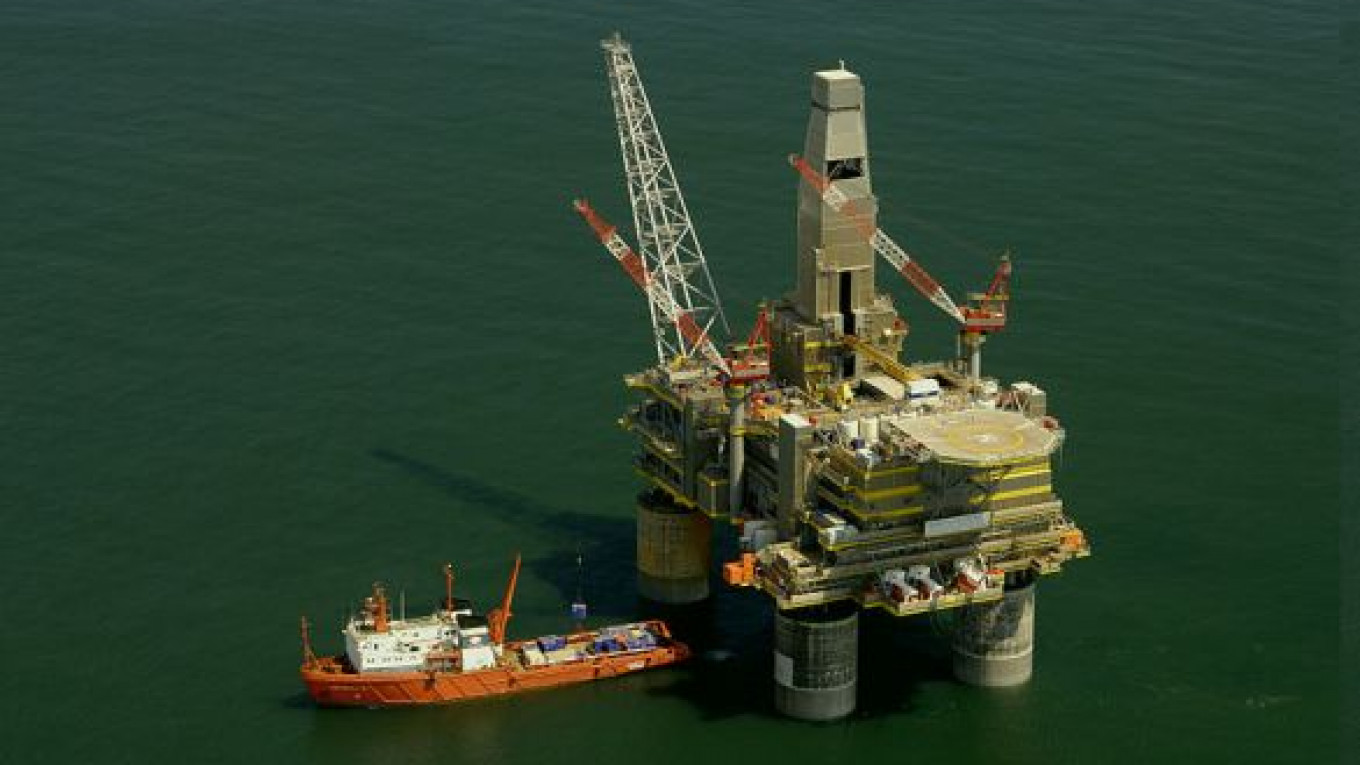Sakhalin Energy has suspended construction of an oil drilling platform that environmentalists said would harm highly endangered gray whales off the coast of Russia's Far East, the World Wildlife Fund said in a .
After years of protests by conservationists, who urged Western banks to block funding for the oil rig, Sakhalin Energy has postponed making any decisions on the project until 2017. The oil and gas venture is controlled by Gazprom with other top shareholders including Royal Dutch Shell, Mitsui and Mitsubishi.
"Sakhalin Energy has delayed until 2017 its decision about building an additional oil platform, meaning the whales are safe at least until 2020," Alexei Knizhnikov, head of the WWF-Russia's oil and gas campaigns, said in the statement, published Monday. "This gives us more time to convince the company that the project should be stopped for good."
The platform was to be built near a key summer feeding ground for gray whales off the northeast coast of Sakhalin Island. Conservationists argued that noise from building and running the rig would drive away the whales, whose weak eyesight forces them to rely on highly sensitive hearing to find food.
"These extraordinary animals and their newborn calves must consume enough food during the summer to last them on their lengthy migration," Knizhnikov said. "This place that is so critical to the whales was put at even further risk by oil and gas prospectors, but the whales have won for now."
The population of western north Pacific gray whales stands at only 150, according to the WWF.
Potential oil spills from the rig would be difficult to clean up in the icy sub-Arctic waters and could be "catastrophic for wildlife," the WWF said.
A Message from The Moscow Times:
Dear readers,
We are facing unprecedented challenges. Russia's Prosecutor General's Office has designated The Moscow Times as an "undesirable" organization, criminalizing our work and putting our staff at risk of prosecution. This follows our earlier unjust labeling as a "foreign agent."
These actions are direct attempts to silence independent journalism in Russia. The authorities claim our work "discredits the decisions of the Russian leadership." We see things differently: we strive to provide accurate, unbiased reporting on Russia.
We, the journalists of The Moscow Times, refuse to be silenced. But to continue our work, we need your help.
Your support, no matter how small, makes a world of difference. If you can, please support us monthly starting from just $2. It's quick to set up, and every contribution makes a significant impact.
By supporting The Moscow Times, you're defending open, independent journalism in the face of repression. Thank you for standing with us.
Remind me later.






